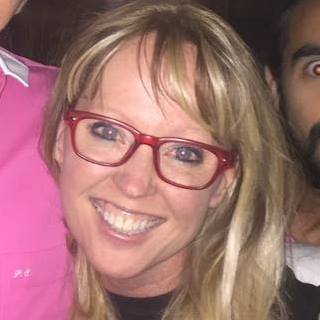As principal analyst and futurist at Altimeter, the digital research branch of parent company Prophet, Brian Solis is dedicated to tracking trends, improving business models, and above all, staying focused and productive.
But something happened to his focus one day. In the midst of trying to write his next book, Solis found himself grappling with a deteriorating attention span and fading mental thrust. Sitting down to work on what would have been his eighth book, Solis found himself skating over the material, unable to dive deep, and running his mind in scattered circles. He rotated through the usual distractions, sharing his struggles online, not ironically, and producing short form content to stay current, plus the usual checks to Instagram, Twitter, Facebook, et al.
The challenge he found was that to stay top of mind, he’d have to continue this process of creating content to what he called “short attention span” theater, which would continue the cycle of publishing and then checking online over and over again daily. This wouldn’t just prevent him from hitting his stride, it would also affect his ability to create at a deeper level.
Why was this happening? Would his book ever materialize? Turns out, it never did. Distractions and a frayed focus got the better of it. The project sank. Frustrated, Solis resolved instead to study what was happening to him. The good news is that it turned into a book that helped him come to grips with frayed attention and more. Now he wants to help others like him.
Turning From the Future to the Now, From Business to Mind
The new book, Lifescale: How to Live a More Creative, Productive, and Happy Life, asks what’s gone wrong with our ability to focus and maintain mental clarity. More importantly, it examines what we can do about it. Solis’s eighth book, it’s his first to move beyond a strictly business-centered thesis. He says it’s not the book he set out to write. Instead, it’s the book he needed to read.
While Googling the symptoms of his distractibility, Solis came across the usual advice: detox, go outside, get more exercise, do yoga, turn off your devices. “It was all good stuff,” he relates, “but it orbited around a central problem without touching it directly.” He didn’t want to just address the symptoms. “What I wanted to know was why? Why was I suddenly so susceptible to distraction? How could I be so stressed and overwhelmed when I was literally getting nothing done?”
Solis went deeper. Using his skills as a research analyst, he started looking at studies and pulling numbers. And clues started turning up.
At The Root of Our Distraction, Solis Found a Tech Problem
“The short answer is that our widespread loss of focus isn’t just a coincidence,” Solis says. It’s been manufactured by tech execs in the battle for consumer attention. But their meddling, by way of social media, apps, mobile devices, and content production, has also had unintended repercussions extending far beyond their designs. “Nobody’s necessarily trying to make us unhappy,” says Solis. “But they do want us addicted to tech, and tech addiction is draining away our happiness, along with our focus and our productivity.”
He says the timeline of our deteriorating focus syncs up with the rise of tech addiction, the anxiety and depression epidemic, influencer culture, and hyper-connectedness.
“Looking at the testimonies from tech execs, former social media engineers, designers and so forth, it’s really scary,” says Solis. “Our minds have been tampered with in the past decade, and it’s having a clear impact in our productivity, not to mention our ability to live with agency and purpose.” But it’s not all bad news, he says, because “it’s all voluntary. It doesn’t have to be this way.”
Kicking Tech Addiction and Getting Our Focus Back
Reclaiming our focus and clarity is possible at an individual level, but it isn’t as simple as just wishing it into being. It’s a process. It has steps, layers, and commitments.
As the title suggests, Lifescale is about scaling down our lives to a manageable size. This starts with cutting out the excess clutter, needless distractions, and wasteful habits. But before we even begin, Solis says we have to realize there’s a problem and awaken to the reality of our situation.
Then it’s a matter of reorganizing our lives around our core values and sense of purpose—the book includes detailed exercises on how to suss these out—and reorient our trajectories to support their fruition.
Of course, there’s a lot of the stuff we all know: go outside, meditate, get plenty of sleep. But the data Solis provides to document the urgency of these things is quite alarming. After all, this is a man intimately familiar with tech, data and what it means to focus.
We’ve taken some damage in the battle for consumer attention. It’s time to turn that around and reclaim our focus. It’s not just a matter of staying productive at work. Our happiness, our drive, our sense of purpose and our ability to positively impact our world depend on it.


